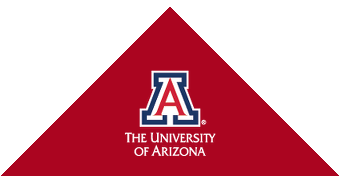We have developed five intensive, week-long service learning courses, and two semester-long courses. The week-long courses employ an intensive week-long, field-based model which immerses students, faculty and community partners directly in rural, border and urban communities which are facing huge health disparity issues. Together we implement programs that directly support community efforts to address these disparities. Each service activity is structured around reflection questions which provide the framework for understanding the role of public health in the elimination of health disparities. Food and lodging is paid. Students are responsible for the 1-unit of tuition. Click here to see the poster.
The semester-long courses:
-
HPS 532A Applied Aspects of Program Planning, Implementation and Evaluation
Course Faculty: Martha Moore-Monroy
This course focuses on the practical applications of planning, implementing, and evaluating public health programs. Program Planning is an applied course integrating classroom learning with field work. In collaboration with colleagues, community leaders and public health professionals students will utilize skills developed in class to the development of a program and evaluation plan.
-
HPS 497/597E Public Health for Community Wellness
Course Faculty: Cynthia Thomson, PhD, RD and Jennifer Peters
Fall 2018
In this course, students develop skills in wellness assessments and lifestyle interventions, gain insights into population health and health disparities through the lens of social determinants of health, and build community relationships for further work such as internships.
The week-long courses:
-
CPH 597F Phoenix Urban Service Learning
Course Faculty: Janet Foote, PhD and Kim Barnes
December 18-22, 2017 (Winter Break)
See the Phoenix Urban Service Learning course in Action on our Service Learning Stories page!
Explore public health policy and action in Phoenix, one of the fastest growing cities in the U.S. Interact with state and community based programs meeting the needs of a diverse metropolitan city.
-
CPH 597B Maternal and Child Health in Rural Settings
Course Faculty: Nicky Teufel-Shone, PhD
May 14 - 20, 2017 (Summer Pre-Session)
This course works directly with tribal communities to support the community health representative program, learning about the model and providing workshops for health education material development both on paper and electronically.
-
CPH 597D Rural Health Service Learning Institute
Course Faculty: Leila Barraza, JD, MPH; Kerstin Reinschmidt, PhD, MPH and Marc Verhougstraete
August 7- 12, 2017 (Summer Session II)
This course focuses on copper mining and cotton farming communities in Graham County and the San Carlos Apache Reservation, and partners with local health departments, county extension programs, rural tribal health departments, and local non governmental agencies to support additional programmatic opportunities for the agencies and the populations that they serve.
-
CPH 597C Border Health Service Learning Institute
Course Faculty: Jean McClelland, Elizabeth Valdez and Luis Valdez
August 11 - 16, 2017 (Summer Session II) Click here to see the course flyer
This course works directly in our border communities with county health departments in Arizona and Sonora, Mexico to support community prevention education campaigns and youth coalitions. Additionally students work with nongovernmental organizations to support local community gardens, food kitchens, and public health outreach in the community.
See the Border Health Service Learning Institute in Action on our Service Learning Stories page!
-
CPH 597A Family and Child Health in Urban Settings Service Learning Institute
Course Faculty: Cynthia Thomson, PhD, RD, Jennifer Peters and Bryna Koch, MPH
August 6 - 11, 2017 (Summer Session II)
This course provides students with ‘real world’ and applied opportunities to learn about current health and social policy affecting families and children. Each year this course directly responds to agencies serving immigrant and migrating populations, including undocumented and mixed immigration status families, resettled refugees, urban American Indians, youth, individuals with mental health issues, and families in transitional housing. Click here to see our course flyer!








